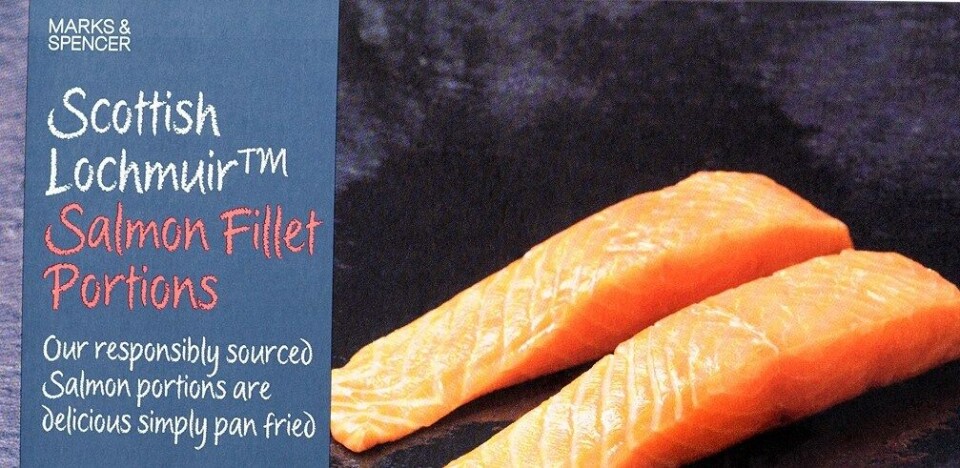
M&S tells Parliament: We’re proud of our Scottish salmon
Marks and Spencer has launched a strong defence of the way its “iconic” Scottish salmon is produced to the Scottish Parliament’s salmon inquiry.

In a written submission to the inquiry, M&S said farmed salmon was its most important seafood raw material by both volume and value.
“We use approx. 10,000 tonnes per annum of whole, conventionally farmed salmon, 100% of which is produced in Scotland, which makes us a significant procurer of Scottish farmed salmon,” said the retail giant, which employs around 85,000 people worldwide.
M&S said its “Lochmuir” code of practice, developed with Scottish Sea Farms, its sole supplier of conventionally-farmed salmon, ensured feed ingredient traceability, high fish welfare standards and visibility of reduction in medicine and antibiotic use, among other things.
“We are proud of Lochmuir salmon because it has become an iconic product and a great success story for M&S,” said the retailer. “Our customers tell us it’s a great eating experience, gaining their trust through its high quality, sustainability credentials, Scottish provenance and UK sourcing.
“The high specification and unique-to-the-market salmon product that Lochmuir is also brings tangible health benefits to customers.”
M&S said it was “cognisant of current and future risks and challenges to the Scottish salmon farming industry”, including sea lice, diseases, organic waste, escapes and the sustainable production and welfare of cleaner fish.
It said it had endeavoured to mitigate these risks in its code of practice but added: “Most of the issues are bigger than our supply chain and require solutions at a national level as well as significant investment from the sector itself.”
The retailer’s submission continued: “We are also concerned about how contentious the issues in Scottish salmon farming are and how polarised and vocal the stakeholder debate has become.
“Negative publicity like we have seen in recent months could undermine consumer confidence in Scottish salmon over the medium term and risks undermining business and investor confidence too.
“It is our view that the future success of the industry is dependent on a positive public perception, so there may be a role for the Scottish Government acting as a convenor of stakeholders to help develop lasting solutions to secure the future sustainable development of the industry in Scotland.”
Inability to expand
M&S warned that it was important Scottish salmon remained competitively priced, adding that it was concerned about the lack of efficiency of some production sites in Scotland, “often driven by their small scale and their inability to expand”.
It said farmers operated in a strict regulatory environment, where compliance could be “expensive, time-consuming and at times onerous”, and that a balance was needed to ensure strong regulation without stifling investment and innovation, which might risk the industry falling behind competitors.
M&S concluded: “To this end, we wonder whether a review of the planning and farming consent process could be undertaken, to determine the potential to improve efficiencies and costs of production in Scotland, as this might help Scottish salmon farmers to be more globally competitive in the future.”
The full submission, and the others made to the inquiry, which is being carried out by the Parliament’s Rural Economy and Connectivity (REC) committee, can be found here.























































